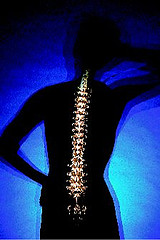 "Cauliflower," Mark Twain once wrote, "is nothing more than cabbage with a college education."
"Cauliflower," Mark Twain once wrote, "is nothing more than cabbage with a college education."
Despite this somewhat disparaging remark, the great American humorist was known to enjoy nibbling on this "intellectual vegetable" while writing his novels.
And while we may only see cauliflower as a minor addition to a tasty salad, as part of a hors d'oeuvres plate, or hidden under a cheese sauce, this unassuming vegetable has medicinal properties. It has historically been used to treat headaches, which is one of the uses Twain found for it after the stress of losing his publishing company started giving him severe headaches.
As a cruciferous vegetable, cauliflower is known to have anti-cancer properties, and it is also rich in folate, vitamin C, vitamin E and beta-carotene. It also has an historical antecedent in treating heart disease. (If you are concerned about heart disease, please attend my lecture next week. We still have a few seats available.) The indole-3-carbinol in cauliflower aids DNA repair in cells and acts as a mild anti-estrogen, thus reducing the growth of estrogen-sensitive tumors; intrestingly, cauliflower has been shown to slow the growth of aggressive prostate cancer.
But enough about cauliflower. Today's quiz is actually about another food with a surprisingly versatile medical pedigree. Commonly found in a couple of different subspecies, this food has been demonstrated to not only prevent cancer, but has been used in hospitals to treat cancer. In fact, patients have had this food therapy break down their cancers so rapidly that their livers were unable to keep up with processing the resulting toxins.
Not satisfied with just being useful to treat cancer, this food is also used to relieve coughing, glandular swelling and sore throat. Not a bad little trifecta there; but to make it even sweeter during this month of Cupid, this food has been used as an aphrodisiac since at at least Roman times.
Of course, your question this week is: What is this food?
The first person to email me with the correct answer will receive a 10% discount on their next purchase from our Dispensary. Your order can be of any size.
Good luck!
Dr. Avery Jenkins is a chiropractic physician specializing in the treatment of people with chronic disorders. He can be reached at alj@docaltmed.com or by calling 860-567-5727.



 It appears that the medical community is about to foist yet another quack "cure" for osteoporosis on the women of this country. Prolia, the latest alleged treatment for osteoporosis, is an injectible that was approved by the FDA primarily on the basis of a single study paid for and conducted by the company that developed the drug.
Ok, let me repeat that one more time. The FDA has approved a dangerous (we'll get to that in a minute) drug on the basis of research that the developer bought. Not to put too fine a point on it, but government oversight of BP's woebegotten Deepsea Horizon was more stringent than this.
It appears that the medical community is about to foist yet another quack "cure" for osteoporosis on the women of this country. Prolia, the latest alleged treatment for osteoporosis, is an injectible that was approved by the FDA primarily on the basis of a single study paid for and conducted by the company that developed the drug.
Ok, let me repeat that one more time. The FDA has approved a dangerous (we'll get to that in a minute) drug on the basis of research that the developer bought. Not to put too fine a point on it, but government oversight of BP's woebegotten Deepsea Horizon was more stringent than this.